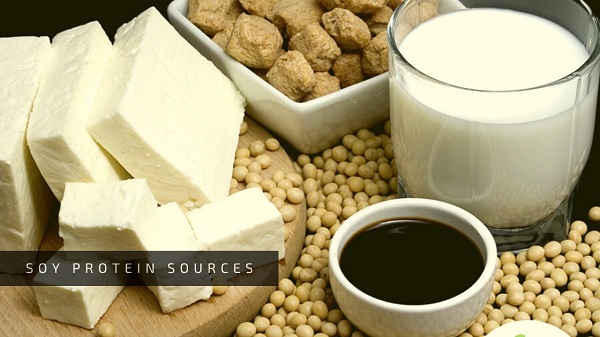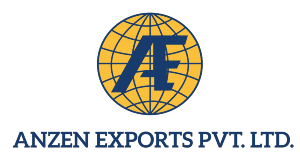
Soy protein is a competent source of plant protein. It has multiple health benefits. These are controlling obesity, increasing muscle mass, enhancing cardiac health, controlling diabetes, and helping to recover from menopausal health conditions to name a few. Sources of soy foods are soybean, tofu, edamame, etc. It is used in many nutraceutical products that augment the health of pregnant women, children, and vegans. (1)
Table of Contents
What is Soy?
Soy is a legume that originated in Asian countries. Soybean is the richest source. It has phytochemicals enriched in protein and other nutritional benefits. Oil and milk can be extracted out of soy.
Also Read – A Comprehensive Review on Sprouted Grains Benefits
Types of Soybeans
Some variations of soybeans are:
- Green Soybeans – Edamame is the most common form of young and green soybean. One may steam and eat it as an appetizer. It is also used in salads, soups, and stir fries for enhancing the flavour and food value.
- Yellow Soybeans – It is used for extracting soy milk, tempeh, tamari, silken tofu, flour, etc.
- Black Soybeans – Fermented forms of black soybean are simmered to use in Asian food. (2)
Why Soy Foods are considered Fortified Food?
Soy foods consist of nine essential amino acids, which make it rich in protein. United States Department of Agriculture has given detailed information about various food products derived from soybean and its nutrient content. All soy foods are rich sources of calcium, thiamine, iron, potassium, phosphorus, and magnesium.
| Nutrients | Soybeans | Soy milk | Edamame | Tempeh | Soy Yogurt |
| Calories | 172 | 43 | 121 | 195 | 94 |
| Protein | 18 gm | 3 gm | 12 gm | 20 gm | 4 gm |
| Fat | 9 gm | 1 gm | 5 gm | 11 gm | 2 gm |
| Carbs | 8 gm | 5 gm | 9 gm | 8 gm | 16 gm |
| Sugar | 3 gm | 4 gm | 2 gm | – | 1 gm |
| Fiber | 6 gm | > 1 gm | 5 gm | – | > 1 gm |
| Calcium — DV | 8% | 9% | 5% | 7% | 9% |
| Iron — % DV | 29% | 2% | 13% | 12% | 6% |
| Magnesium — % DV | 20% | 4% | 15% | 18% | 10% |
| Phosphorus — % DV | 20% | 3% | 14% | 20% | 3% |
| Potassium — % DV | 11% | 3% | 9% | 9% | 1% |
| Zinc — % DV | 10% | 2% | 12% | 14% | 3% |
| Copper — % DV | 45% | 18% | 38% | 60% | 8% |
| Manganese — % DV | 36% | – | 45% | 56% | – |
| Selenium — % DV | 13% | 4% | 1% | 0% | 24% |
| Thiamine — % DV | 13% | 2% | 17% | 5% | 3% |
| Riboflavin — % DV | 22% | 14% | 12% | 27% | 2% |
| Vitamin B6 — % DV | 14% | 2% | 6% | 12% | 1% |
| Folate — % DV | 14% | 2% | 78% | 5% | 2% |
DV means daily values. It is a reference amount denoted as gm, mg, or microgram. % DV means how much nutrient a specific food contributes to a total diet of the day. (3)
Health Benefits of Soy Protein
It is a natural source of polyphenols, which is an antioxidant that protects the body from cell damage, conditions affecting cardiovascular health, dementia, thyroid, aging, menopausal issues such as hot flashes, osteoporosis, cancer, and other illnesses.
Isoflavone is one of the vital polyphenols that act as a phytoestrogen. It acts as an active oestrogen receptor. Soy extracts are often used in nutraceutical products to treat fibroids, menopausal problems, etc. It reduce the bad cholesterol. Soy based food is suggested in heart-healthy diet plan, especially for women. (4)
Apart from these, Vitamin C and folate boosts textured soy protein, however, it is low in saturated fat. Therefore, dieticians prescribe it to obese patients.
Soy has dietary cholesterol that lowers the serum cholesterol up to 9.3%, triglycerides, and LDL or bad cholesterol up to 12.9%. (5)
Some Delectable Soy Dishes
Soybean with spinach leaves is one of the most delicious yet healthy Indian dishes for vegans. Other dishes that can be easily made at home are soya stir fry, soya chunks curry, soya chana masala, soya mutter pulao, soya tikkis, soya baby corn stir fry.
Soy Supplements
To enhance the soy intake one may take dietary supplements. Soy extracts used in nutraceutical products for dietary supplements mostly have soy isoflavones as the type of soy extracts.
Anzen Exports is a renowned exporter of nutraceutical and herbal extracts serving manufacturers of finished products. We have more than 30 years of a proven track record of catering to the pharmaceutical industry with active pharmaceutical ingredients. Our associate company is manufacturing nutraceutical products under its own label.
We research medical journals and other authentic sources to put together an informative easy-to-read blog for all our readers. Please leave your valuable feedback in the comments below.
Disclaimer:
Anzen Exports’ blog posts are based just on our research from cited websites. To be best informed, we advise consulting a doctor about an ingredient or medicine prior to taking it.
Sources:
- NCBI
2) Medical News Today
Website – https://www.medicalnewstoday.com/articles/320472
3) Healthline
Website – https://www.healthline.com/nutrition/is-soy-bad-for-you#nutrition
4) Science Daily
5) Harvard T.H Chan
Website – https://www.hsph.harvard.edu/nutritionsource/soy/
